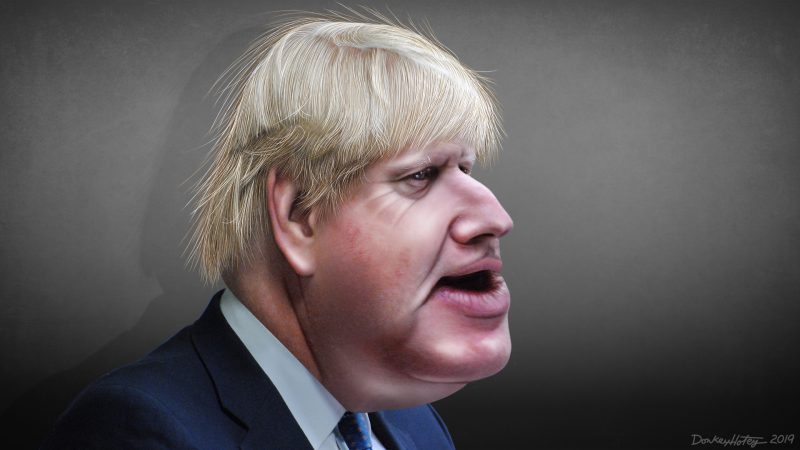It is never too early to wonder whether our prime minister will still be in office by the next general election. The Right Dishonourable asked whether Donald Trump would serve his full term as president shortly after his inauguration in 2017, concluding there was only 17% chance he would not do so.
In similar spirit, Guardian pundit Suzanne Moore recently tweeted out, “I predict [Boris] Johnson won’t serve a full term.” Despite the wags in the comment, she presumably was referring to his capacity as prime minister rather than father, fiance or husband.
The rest of the statement is harder to parse. In the British system a prime minister’s “term” could refer to the gap between any two general elections or their full time in office. By the former definition Harold Wilson served three ‘full’ terms before giving way to James Callaghan halfway though his fourth, but one of those was barely over nine months.
This might have been superseded by the Fixed-Term Parliaments Act from 2011, which set terms at a neat five years. This was supposed to prevent prime ministers calling snap elections whenever they pleased, but the government has already begun the process of repealing this, so a general election could be called at any time. Even so, I’d expect Johnson to serve at least four years, given his Commons majority of 81.
The other factor that is unclear in Moore’s prediction is how confident she is. The tweet makes it sounds as though she is 100% sure. If this is true she is overconfident: unless she’s found out that Johnson is terminally ill there is no way she could justify such a view.
Still, the only sensible way to interpret such a prediction is to assume it means that Johnson will step down before the next general election, which his successor will fight instead. Given the size of his majority and current polling numbers such a prediction seems foolhardy, but this is contradicted when you look at precedent. And that’s beside the question of whether he’d win if he did fight it.
The outside view
The simplest heuristic for predicting whether Johnson will fight the next general election is to ask what proportion of sitting British prime ministers have done so. There are, however, several ways to answer this question.
Academic consensus declares Robert Walpole to be the first prime minister, taking office on 3 April 1721. After he did so there were 13 general elections in the 1700s, the end of which coincided with the abolition of Ireland’s parliament and the creation of a joint assembly covering Great Britain and Ireland. There were then 26 general elections in the 1800s, 25 in the 1900s, and 6 in the current century. This totals to 70.
However, most of these elections were based on a small franchise. The UK was slow to democratise: the first time that all adult men (aged 21 and over) could vote in general elections was in 1918, with women having to be aged at least 30 and to occupy a house to participate. These qualifications were abolished in 1928, when women were finally allowed to vote on the same basis as men.
If we take 1918 to be the start of mass democracy in the UK, there have only been 28 elections in this period, and 20 prime ministers. However, some of these prime ministers served multiple terms (in the sense of periods between general elections), and some only served partial terms.
The relevant statistic for the outside view begins with how many times a prime minister had the opportunity to fight the next election in the mass democratic age. This includes any time a prime minister took office or resumed their office following a general election.
The dates for this are a bit messy, particularly when prime ministers took a while to be replaced following a general election. It is theoretically possible for a new general election to be called shortly after one delivers an inconclusive result, but the practice is for a hung parliament to struggle on for at least six months before the country goes back to the polls.
To give a concrete example, there was speculation Gordon Brown could remain in office following the 2010 general election, but after several days of negotiations David Cameron became prime minister. I have not counted this as a new ‘term’ in which Brown could have fought another general election, since the fallout from the previous one had not been dealt with.
Similarly, Stanley Baldwin remained prime minister for almost two months after the December 1923 election, before losing a vote on his King’s Speech (setting out the government agenda). I again have not counted this as a new term, although this case is more marginal. Others might make different judgments, but they would come out with similar numbers.
To conclude, I’d say there were 39 opportunities for sitting prime ministers to contest another general election, and in 26 of these cases the sitting prime minister did contest the next election. This gives us a base rate of 66.7%, or two-thirds.
(This figure was lower than I expected. I suspect long-serving prime ministers dominate our view of the office, and we more readily forget the many who serve just a few years and disappear without fighting an election.)
The number makes Moore’s prediction seem more reasonable. Additionally it’s worth noting that prime ministers who won decent majorities have failed to complete their terms, for various reasons. At some point I’ll follow up this post, looking more closely at these examples and adjusting the base rate for a more detailed forecast.
Image credit – Boris Johnson, October 2019 by DonkeyHotey
